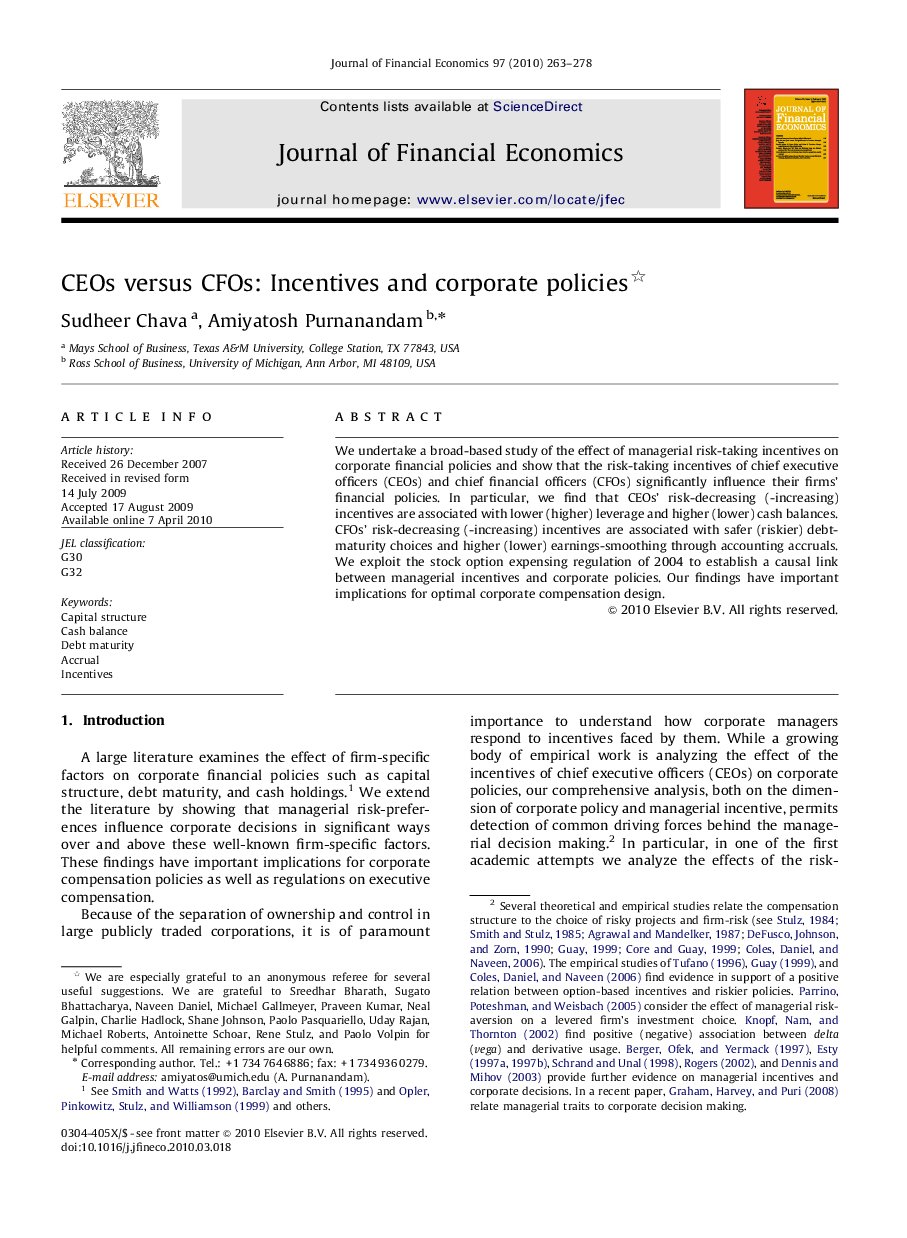| Article ID | Journal | Published Year | Pages | File Type |
|---|---|---|---|---|
| 959770 | Journal of Financial Economics | 2010 | 16 Pages |
We undertake a broad-based study of the effect of managerial risk-taking incentives on corporate financial policies and show that the risk-taking incentives of chief executive officers (CEOs) and chief financial officers (CFOs) significantly influence their firms’ financial policies. In particular, we find that CEOs’ risk-decreasing (-increasing) incentives are associated with lower (higher) leverage and higher (lower) cash balances. CFOs’ risk-decreasing (-increasing) incentives are associated with safer (riskier) debt-maturity choices and higher (lower) earnings-smoothing through accounting accruals. We exploit the stock option expensing regulation of 2004 to establish a causal link between managerial incentives and corporate policies. Our findings have important implications for optimal corporate compensation design.
